Sustainable and responsible campus life 2025
We as higher education institutions have drawn up a joint action plan regarding sustainable and responsible campus life. Our action plan focuses on measures aimed at reducing our carbon footprint. We have identified key areas for doing so: properties, travel, procurement and restaurant services.

Sustainable development and responsibility are included in the strategy of Oulu University of Applied Sciences (Oamk). Sustainable development refers to ecologically, socially, culturally and economically sustainable development. Acting responsibly and taking responsibility are part of our values. We see responsibility as a comprehensive concept that involves observing the wide-ranging impact of higher education institutions in society. We produce expertise openly and extensively, and by doing so we strengthen our handprint in the development of society.
Our sustainability and responsibility work is guided by the United Nations (UN) Agenda 2030 and the Ministry of Education and Culture's Sustainable Development Guidelines. Oamk is is committed to the guidelines of the Sustainable, Responsible and Carbon-Neutral Universities of Applied Sciences by the Rectors’ Conference of Finnish Universities of Applied Sciences (Arene).
In our Action Plan, we are particularly committed to the following UN Sustainable Development Goals:
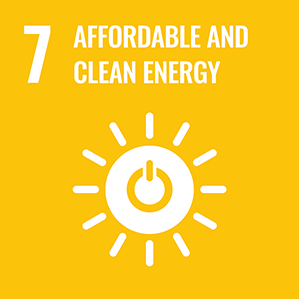
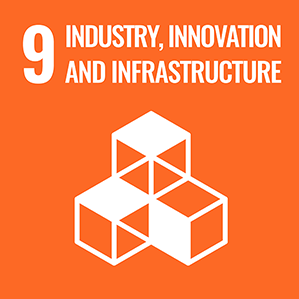
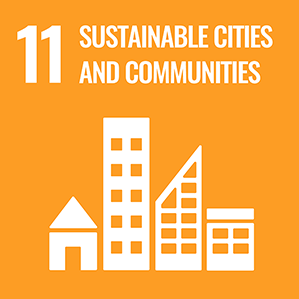
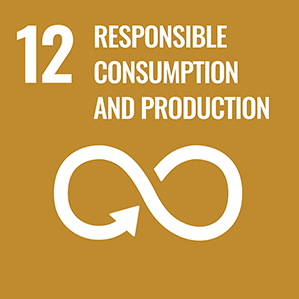
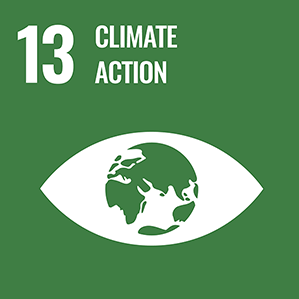
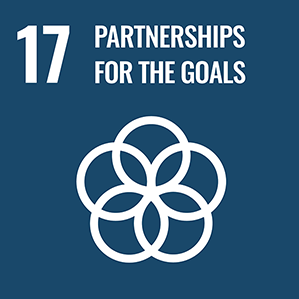
Objectives of sustainable campus life
”Our campuses offer a sustainable and inspiring environment for working and studying.”
Our goal is to reduce our carbon footprint by 50% by 2025, compared to 2021. We commit to implementing various emission reduction measures, and we will monitor the development of our carbon footprint annually. Oamk follows the Arene carbon footprint calculation model.
The most important aspects of reducing our carbon footprint have been identified as properties, travel, procurement and restaurant services. In this action plan, we highlight the objectives and key measures for both Oamk and the University of Oulu.
Sustainable, healthy and safe facilities

Our facilities must be suitable for studying and working in a healthy and safe manner. In the premises of Oamk and the University of Oulu, we will hold equality as an aspect of sustainable development. We will increase cooperation with property owners in matters related to the sustainability and responsibility of properties, and we will strive to have an influence on these aspects.
Our campuses will be renovated in accordance with the principles of sustainable development. The renovation process will involve sustainable solutions and equality. The renovated facilities in Linnanmaa are now particularly accessible, which is a factor that will be relevant in other spaces under renovation as well. For people commuting by bike, the renovated facilities also now include changing rooms and showers.
Using space more effectively
We can reduce our environmental load by using space more efficiently. In the future, we will explore our possibilities to make our operations more compact on all campuses and utilise the opportunities created by remote work.
Measures
- We will explore the possibility of using the spaces on our campuses more efficiently.
- We will make it possible to work remotely when tasks are not tied to a specific location.
Monitoring
- We will monitor facility utilisation rates with various systems and measurements.
- We will monitor the amount of remote work.
Increasing energy efficiency
Promoting energy efficiency is part of energy and climate policies aimed at reducing the amount of consumed energy in Finland and the EU. Improved energy efficiency reduces CO2 emissions, lowers energy consumption and produces cost savings. (Energy Authority)
The primary owner of the properties is the University Properties of Finland Ltd (SYK), which is part of the Energy Efficiency Agreement for Property Sector. SYK’s energy management service will provide us with reports on the consumption of electricity, heat and water. Oamk and the University of Oulu will buy 100% green electricity and use district heating.
The roof of the Linnanmaa campus has a solar power system. Some of the solar panels are used for research as well as electricity production. The production of solar power was started in autumn 2020.
Measures
- We will reduce energy consumption and produce energy.
- We will participate in the development of property-specific energy production solutions and increase investments in renewable energy, such as solar power.
- We will increase energy efficiency, for example in lighting and ventilation.
- We will promote the introduction of water-saving solutions in connection with renovations.
Monitoring
- We will monitor properties’ consumption readings and make the monitoring data available for everyone.
- We will monitor the production readings of solar panels in real time. We will make the monitoring data available for everyone.
Sorting and recycling
We will make the sorting and recycling of waste on campuses more effective. The biowaste produced on campuses will be used to produce biogas. Packaging waste (plastic, glass and metal packaging) sorted in coffee rooms will be recycled as material, likewise cardboard. Burnable waste (mixed waste) and energy waste will be transported to waste incineration plants and turned into energy.
Oamk and the University of Oulu will use local service providers to organise the recycling or treatment of waste electronic and electrical equipment (WEEE), old furniture and equipment, confidential paper materials, metal scrap and hazardous waste.
Our goal for 2025 is to increase the degree of material recovery of waste generated on campuses by 50% and to reduce the amount of burnable waste generated on campuses by 50%.
Measures
- We will continue to upgrade the waste sorting options in break rooms. Each break room will have a separate waste container for the following types of waste: biowaste, plastic packaging, glass and metal packaging and burnable waste (mixed waste). The waste containers will be clearly marked.
- We will place written waste sorting instructions in the break rooms for everyone to see.
- We will prepare a waste management plan for the campuses, with instructions and the locations of waste bins in outdoor and indoor areas clearly marked on a map.
- We will promote the reuse and recycling of goods.
- We will phase out individual waste bins at each workstation and switch to space-specific, centralised solutions.
- We will compile a recycling information bank website from Oulu's recycling services.
- We will look for waste management solutions aimed at material recovery for waste types that are still lacking ones.
Monitoring
- We will monitor the carbon footprint and volume of waste by type.
- We will monitor the degree of material recovery of the different types of waste.
- We will monitor the consumption of office paper.
Reducing our carbon footprint caused by travel
Travel is a key component of our carbon footprint. By travel, we mean trips taken for work purposes. We will reduce the carbon footprint of travelling in a controlled way and support the possibilities of using remote connections.
By commuting, we mean students and personnel commuting to campuses. We encourage personnel and students to commute to campuses by means of public transport, and we will create more opportunities to commute by bicycle or on foot.
We support sustainable travel and movement
Measures
- We will reduce travelling, especially by plane. We will favour means of travel that support sustainable development.
- We will introduce the Ekstra Class as a standard for travelling by train.
- We will start using a variety of remote connections in a more versatile manner.
- We will use remote connections and participate in events virtually instead of travelling to them.
- In the future, we will organise our events so that others can participate remotely.
- We will make it easier to commute to campuses by using public transport or by cycling or walking.
- We will offer commuting benefits to people who use public transport.
- We will make it easier to commute by bike by providing bike parking, e-bike charging and bike maintenance facilities.
- We will explore opportunities for introducing company-owned bikes.
- We will contribute to improving public transport and monitoring current improvements.
- We will promote sustainable development in cars used by Oamk and the University of Oulu.
- We will reduce the number of cars we own and prioritise renting over owning.
- In new acquisitions, we will favour buying low-emission cars.
- We will investigate the possibility of introducing a shared car service.
- We will add charging stations for electric and hybrid cars on campuses.
Monitoring
- We will monitor the carbon footprint of travelling for work.
- We will monitor the number and ratio of different forms of transportation.
- We will calculate the carbon footprint of the cars used by Oamk and the University of Oulu and look for ways to reduce their carbon footprint.
- We will monitor the utilisation rates of bike parking (utilisation rate measurements: pilots and demos).

Environmentally aware and responsible procurement
The aim of regulating procurement is to use our resources effectively, benefit from competition on the market, have equal and non-discriminatory treatment of candidates and tenderers, pursue publicity and transparency, and promote the functioning of the market.
We will take the environmental perspective into account in procurement and service tendering by requesting certificates from service or product providers on their environmental systems or similar efforts. We will assess the environmental stress of products, avoid unnecessary procurement and recycle furniture and equipment. We are involved in the Hansel Framework Agreement where sustainable development is an important criterion for procurement.
We make sustainable procurements and extend the lifecycle
Measures
- We will emphasise responsibility and sustainable development in procurement and give the issue visibility.
- We will buy furniture and office supplies from operators who use circular economy.
- We will recycle furniture on campuses.
- We will extend the lifecycle of the computers we are using.
Monitoring
- We will report the annual percentage of our procurement that are classified as environmentally friendly.
- We will calculate the carbon footprint of our procurement.
- We will monitor the lifecycle of our computers.
- We will monitor the recycling rate of our furniture.

Supporting environmentally friendly choices in campus restaurants
Our aim is to support healthy and environmentally friendly choices in campus restaurants and to reduce food waste. The climate and emission impacts caused by lunch meals are part of the carbon footprint of each individual, not the organisation. But we can still influence individual choices and carbon footprint on an institutional level by increasing messaging about sustainable lunch choices and by actively cooperating with restaurant service providers.
The service providers have been selected through competitive tendering. The companies providing restaurant services have their own environmental and quality programmes.
We cooperate closely with restaurant service providers
Measures
- We will cooperate more closely with restaurant service providers operating on campuses. We will organise regular cooperation meetings around the theme of sustainability and responsibility.
- We will work to bring visibility on the issue of food waste in restaurant services with the aim of reducing waste.
- We will work to have information in lunch lists on the origin of ingredients, including whether they have been produced in Finland.
- We will use ceramic mugs, cups and plates in events organised by Oamk and the University of Oulu. We will work to make it possible to use one's own mug to buy take-out coffee and tea in restaurants.
- We will strive to influence the carbon footprint caused by restaurant services.
Monitoring
- We will include weekly statistics of food waste on restaurant display screens.
- We will calculate the annual carbon footprint of food waste.
- We will monitor the monthly rate of food served that is produced in Finland.

Extensive communications and reporting
Sustainable development is important for the future of our planet. Higher education institutions must take action and lead the way. Our goal is to be seen as an institution that supports sustainable development also on campus.
We are committed to various emission reduction measures aimed at reducing our carbon footprint. We will calculate the carbon footprint annually in both Oamk and the University of Oulu. Our starting level is 2021 for developing a shared calculation model at the UAS level and at the University of Oulu.
We will monitor the progress of the measures on an annual basis and, if necessary, we will specify our objectives and measures. We will look for new openings to achieve our goals during the action plan period. Going forward, the Sustainable Campus Life survey will serve as a tool for engagement and influence and as a part of monitoring.
To give visibility to the implementation and monitoring of the action plan, we will define the communication channels that we will be using. Our goal is to communicate through multiple channels so that our measures can gain visibility among staff and students. In our social responsibility report, we will highlight the responsibility of higher education institutions as a whole in addition to sustainable life on campus.
